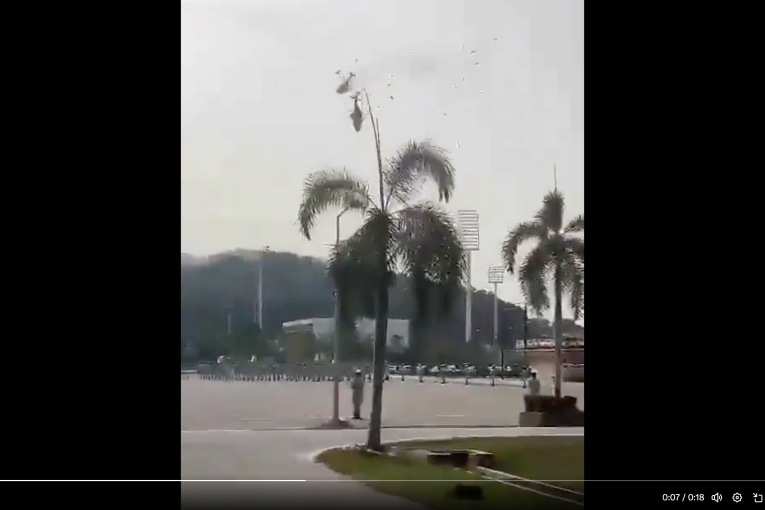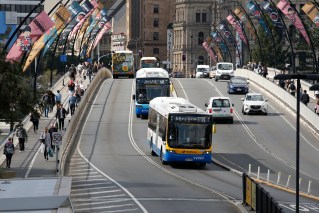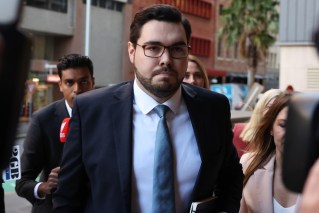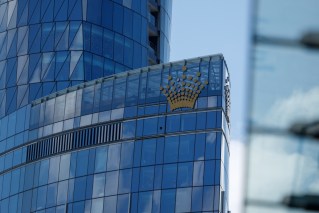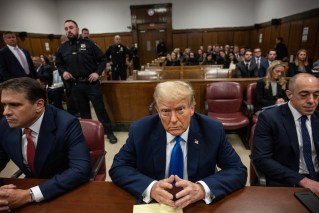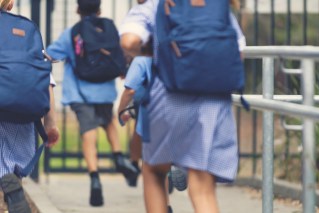Australian, British and American forces will work together on hypersonic and anti-hypersonic weaponry, as the West turns up the pressure on Russia and global outrage grows over atrocities committed in Ukraine.
Russia already has hypersonic weapons – which travel five times the speed of sound – and has used them for the first time in combat during its assault on Ukraine.
In another announcement in response to the war, the European Commission has proposed a new set of sanctions against Russia including a ban on coal imports.
Meanwhile, Ukrainian President Volodymyr Zelensky has appeared at the United Nations Security Council to demand Russian officials be “brought to justice immediately for war crimes”.
“Now the world can see what Russia did in Bucha,” Mr Zelensky said.
“But the world has yet to see what they have done in other occupied cities and regions of our country.”
Here’s the latest.
Hypersonic missiles
CNN revealed on Wednesday morning that the American military had secretly tested hypersonic missiles last month.
It said Pentagon officials had not initially publicised the successful tests because it did not want Moscow to view the tests as a threat.
British Prime Minister Boris Johnson, US President Joe Biden, and Australian Prime Minister Scott Morrison have since issued an agreed statement as part of the AUKUS military pact.
Initially surrounding submarines, Mr Johnson previously suggested the alliance could go beyond that and the trio has now committed to “commence new trilateral co-operation on hypersonics and counter-hypersonics, and electronic warfare capabilities, as well as to expand information sharing and to deepen co-operation on defence innovation”.
The Russian military has boasted about its use of the Kinzhal hypersonic missile in Ukraine, the first time it had been used in combat.
In a statement, the AUKUS leaders said: “We reaffirmed our commitment to AUKUS and to a free and open Indo-Pacific. In light of Russia’s unprovoked, unjustified, and unlawful invasion of Ukraine, we reiterated our unwavering commitment to an international system that respects human rights, the rule of law, and the peaceful resolution of disputes free from coercion.”
Tweet from @CNN
They added: “We also committed today to commence new trilateral cooperation on hypersonics and counter-hypersonics, and electronic warfare capabilities, as well as to expand information sharing and to deepen co-operation on defence innovation.
“These initiatives will add to our existing efforts to deepen co-operation on cyber capabilities, artificial intelligence, quantum technologies, and additional undersea capabilities.
“As our work progresses on these, and other critical defence and security capabilities, we will seek opportunities to engage allies and close partners.”
The leaders also said they were “pleased with the progress” Australia was making in the development of nuclear-powered submarines.
The initial announcement of the AUKUS pact caused outrage in Paris, as the submarine deal came at the expense of a lucrative agreement between Australia and France to provide diesel-electric boats.
Tweet from @BorisJohnson
EU eyes gas and oil bans
The European Commission has proposed new sanctions against Russia over its invasion of Ukraine, including a ban on buying Russian coal and on Russian ships entering EU ports, and said it was working on banning oil imports too.
“We all saw the gruesome pictures from Bucha and other areas from which Russian troops have recently left. These atrocities cannot and will not be left unanswered,” said the head of the European Union’s executive, Ursula von der Leyen.
“The four packages of sanctions have hit hard and limited the Kremlin’s political and economic options. In view of events we need to increase our pressure further,” she said in a speech posted on Twitter.
Russia is waging a cruel, ruthless war, also against Ukraine’s civilian population.
We need to sustain utmost pressure at this critical point.
So today we are proposing a 5th package of sanctions. pic.twitter.com/GEuPQf0Wgr
— Ursula von der Leyen (@vonderleyen) April 5, 2022
She said the proposal entailed an EU ban on imports of coal from Russia worth 4 billion euros per year, and a full transaction ban on four key Russian banks, including the country’s second-largest, VTB.
“We are working on additional sanctions, including on oil imports, and we are reflecting on some of the ideas presented by the member states, such as taxes or specific payment channels such as an escrow account,” Ms von der Leyen said.
The EU will also ban Russian vessels and Russian-operated vessels from accessing EU ports, though there would be exemptions for agricultural and food products, humanitarian aid and energy.
The EU will also ban Russian and Belarusian road transport operators and prohibit the sale to Russia of quantum computers, advanced semiconductors, sensitive machinery and transportation equipment worth 10 billion euros annually.
Ms Von der Leyen said the 27-nation bloc will also stop imports of Russian wood and cement as well as seafood and liquor worth in total some 5.5 billion euros annually.
It will exclude Russian companies from public procurement tenders in EU countries and add further individuals to a list of people whose assets in the EU will be frozen and who will not be allowed to enter the EU.
‘Most terrible war crimes since World War Two’
Ukrainian President Volodomyr Zelenskiy has told the UN Security Council that “accountability must be inevitable” for Russia.
Between 150 and 300 bodies might be in a mass grave by a church in Bucha, according to Ukrainian human rights ombudswoman Lyudmyla Denisova.
Mr Zelensky questioned the value of the 15-member Security Council, which has been unable to take any action over Russia’s February 24 invasion because permanent member Moscow is a veto power, along with the United States, France, Britain and China.
“We are dealing with a state that turns its veto at the UN Security Council into the right to (cause) death,” he said in a live video address from the Ukrainian capital Kyiv, calling for action to reform the world body.
“Russia wants to turn Ukraine into silent slaves.”

Ukrainians dug mass graves for victims of the the alleged ‘massacre’ in Bucha. Photo: Getty
Responding to Mr Zelensky, Russia’s UN Ambassador Vassily Nebenzia told the Council that Russian troops were not targeting civilians, dismissing accusations of abuse as lies.
Moscow has said the deaths in Bucha were a “monstrous forgery” staged by the West to discredit it.
US Ambassador Linda Thomas-Greenfield said responsible world powers and global leaders need to “show backbone – and stand up to Russia’s dangerous and unprovoked threat against Ukraine and the world”.
China’s UN ambassador told Tuesday’s session that the reports and images showing civilian deaths in Bucha were “very disturbing” but added that the circumstances should be verified and any accusations should be based on facts.
-with wires

